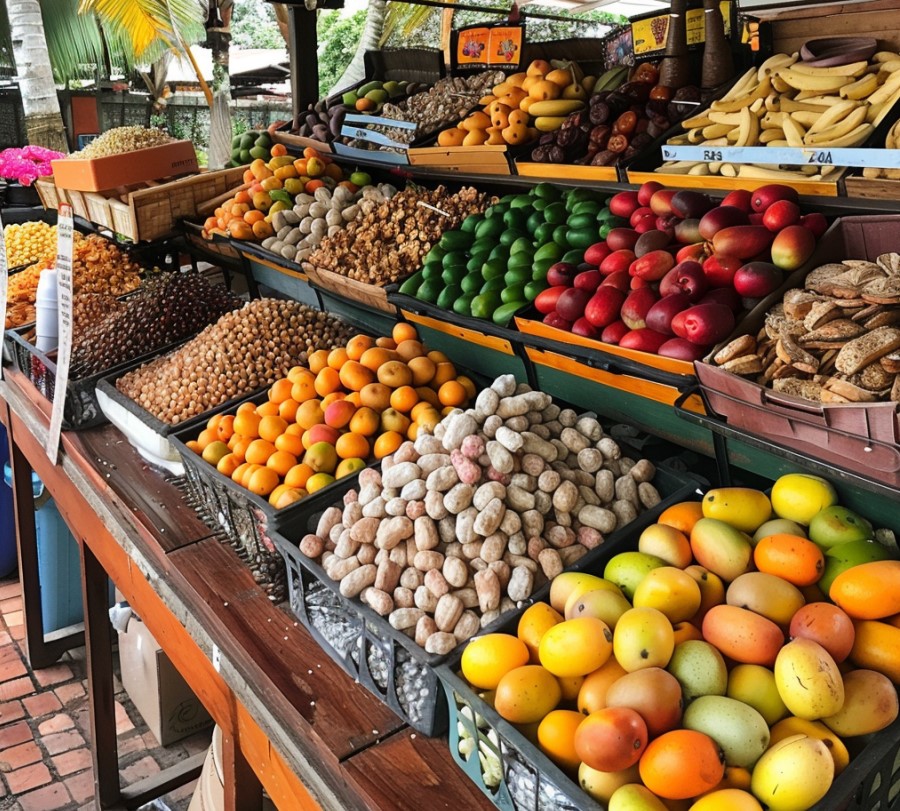What food can I take to Colombia?
When you start a journey to Colombia, it offers a prosperous cultural experience, beautiful scenery, and, of course, mouth-watering meals. As you get ready for this South American haven, you might wonder which food items to carry along with you that could be tasted while on the way. Understanding Colombia’s rules on bringing in food guarantees an easy pleasant trip through customs without any surprises.
Colombian Food Import Regulations: A Brief Background
Before getting into those specific food items that are allowed into Colombia as personal imports one needs to understand the country’s regulations in regard to food importation. Many states including Colombia have strict laws which are meant to protect their agriculture industry, biodiversity, and also public health. These regulations aim at protecting local ecosystems from such things as pests, disease, or anything else that can put human safety or life at risk.
Food Items That are Allowed for Personal Consumption
Luckily enough for travelers going to Colombia, there are some food items whose importation is allowed. Such products usually consist of non perishable goods and industrialized products that do not pose much danger to the nation’s agricultural sector and health standards. The following is an exhaustive list of the kinds of foods that one is able to carry into Colombia:
| Food Item | Notes |
|---|---|
| Packaged Snacks (e.g., chips, crackers) | Sealed snacks packaged by the manufacturer can often make it through. |
| Canned Goods | Opened cans of fruit and vegetables as well as meat are permitted if these cans remain sealed from production. |
| Dry Foods (e.g., pasta, rice, grains) | As long as they are still sealed in their original packaging dry foods are generally permissible. |
| Spices and Condiments | A small amount of spices and condiments packed in proper containers is acceptable. |
| Coffee and Tea | Besides Colombia’s famous coffee brands one may also bring their favorite coffee brand or tea bag for self-use. |
| Chocolates and Candy | Wrapped bars of chocolates together with candies are okay. |
| Processed Foods (e.g., cookies, biscuits) | Packaged processed foods may be admitted on transportation means generally. |
| Nuts and Dried Fruits | Sealed nuts and dried fruits are admissible. |
| Protein Bars and Shakes | Sealed protein bars as well as shakes are allowed. |
| Bottled Beverages (non-alcoholic) | Normally, non-alcoholic beverages that are in sealed bottles can be taken with you. |
| Dietary Supplements | Unopened dietary supplements for personal use are allowed. |
| Baby Food and Formula | Closed jars or pouches of baby food as well as formulas shall be welcomed. |
| Pet Food | Sealed pet food packages may be used personally. |
| Personal Snacks (for the flight) | You are advised to carry some snacks for the journey such as trail mix, granola bars, or dried fruit for travel purposes, but the airline should be consulted. |
Items Subject to Restrictions or Prohibitions
Different products have different rules. Many types of food can be taken for personal use but restrictions are imposed on some items and others are simply prohibited. The most common restrictions are aimed at maintaining high levels of public health and preventing the entry of pests into a country. Familiarizing yourself with these restrictions is vital to avoid troubles at customs. Below is a list of foods that are restricted or illegal in Colombia:
- Fresh fruits and vegetables: Fresh fruits and vegetables risk harboring pests and diseases; hence, their importation is banned.
- Meat and dairy products: Mostly perishable meat, fresh/frozen meats, cheeses, and milk among others are not allowed.
- Homemade or unpackaged foods: Homemade meals or those without proper packaging/labeling may be denied entry.
- Seeds and plants: Bringing seeds, live plants, or plant materials into Colombia normally face prohibition due to fear of invasive species spread.
- Alcohol: Though small quantities for personal consumption might be permitted; it’s important to verify specific regulations as well as the limits provided.
- Street foods: Street food can offer an exciting eating experience however care should be taken so as not to contract food poisoning.
Read also Medications not allowed in Colombia
Tips for Travelers
Below are some crucial tips on how you can make your travel experience in Colombia seamless:
- Check the latest regulations: It is important to check current up-to-date information about the importation of food by referring to official sources or contacting Colombian Customs before you leave because these rules might change frequently.
- Pack securely: Ensure that any food items you bring are well packed so they do not get damaged during transportation by air, sea, or road when you move from one place to another within the borders of Colombia itself.
- Declare your items: On arrival in Colombia, inform customs officials about any foodstuffs you may have brought so as not to suffer penalties including seizure.
- Respect local customs: Although everyone desires home comfort away from home; making this choice while in Colombia can open up an opportunity to explore a diverse local cuisine that supports domestic farmers and entrepreneurs.
- Dispose of waste responsibly: If you have any leftover food items or packaging materials, dispose of them responsibly to minimize environmental impact.
To sum it up, the fact that Colombia has regulations in place for agriculture and public health shouldn’t dampen your culinary appetite during travel. By observing allowed food categories and adhering to importation restrictions one can enjoy his stay in this country with its delicious tastes without problems.
So as you prepare for your Colombian adventure, pack your favorite snacks, sink your teeth into the local dishes, and take a bite out of life on your gastronomic trip through the vibrant lands of this multi-cultural paradise. ¡Buen provecho!


